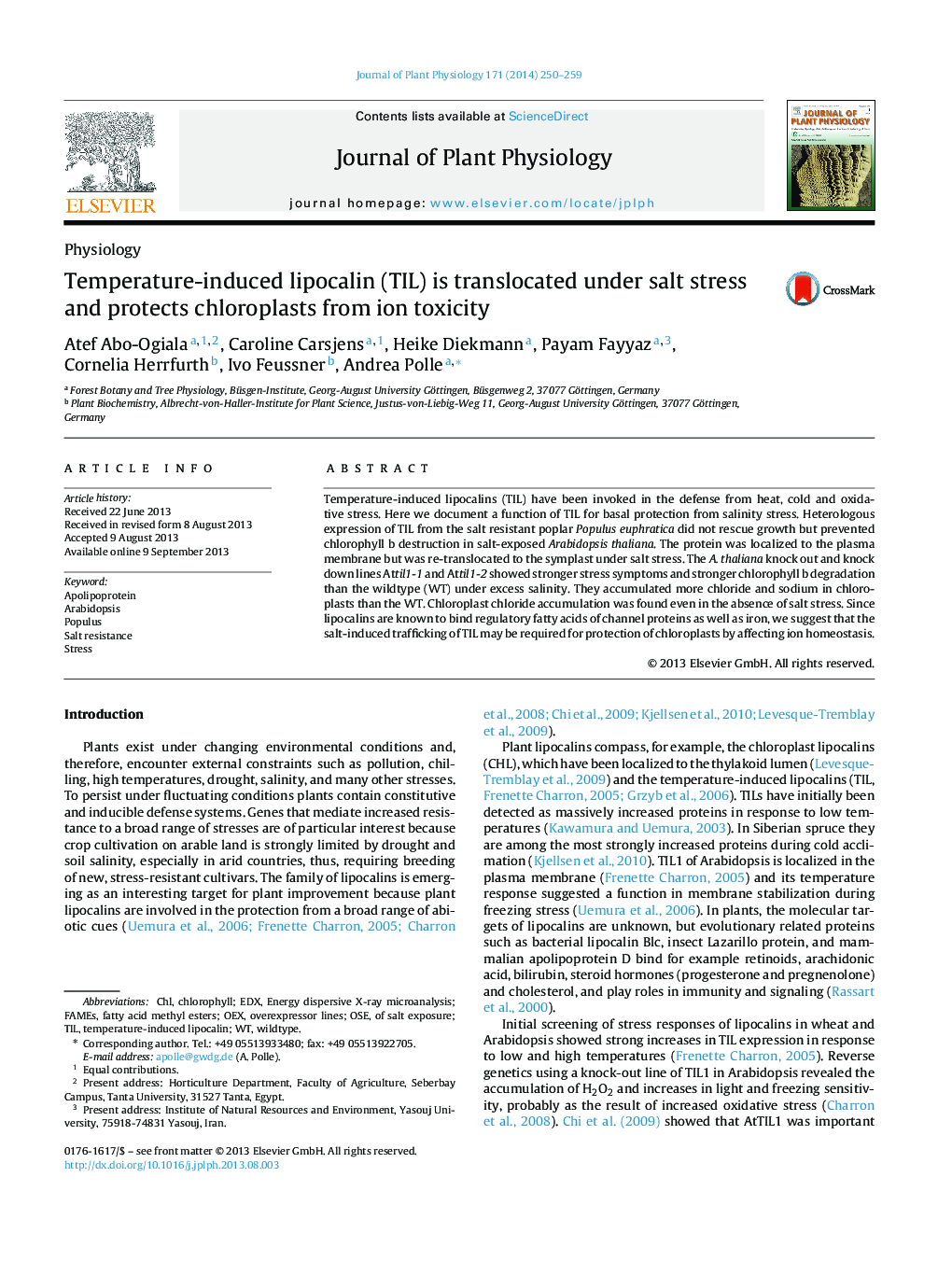| Article ID | Journal | Published Year | Pages | File Type |
|---|---|---|---|---|
| 2055873 | Journal of Plant Physiology | 2014 | 10 Pages |
Temperature-induced lipocalins (TIL) have been invoked in the defense from heat, cold and oxidative stress. Here we document a function of TIL for basal protection from salinity stress. Heterologous expression of TIL from the salt resistant poplar Populus euphratica did not rescue growth but prevented chlorophyll b destruction in salt-exposed Arabidopsis thaliana. The protein was localized to the plasma membrane but was re-translocated to the symplast under salt stress. The A. thaliana knock out and knock down lines Attil1-1 and Attil1-2 showed stronger stress symptoms and stronger chlorophyll b degradation than the wildtype (WT) under excess salinity. They accumulated more chloride and sodium in chloroplasts than the WT. Chloroplast chloride accumulation was found even in the absence of salt stress. Since lipocalins are known to bind regulatory fatty acids of channel proteins as well as iron, we suggest that the salt-induced trafficking of TIL may be required for protection of chloroplasts by affecting ion homeostasis.
